Breaking Ground 101 - Voting is Power
By Brian Keller, Public Policy and Voting Attorney at Disability Rights Tennessee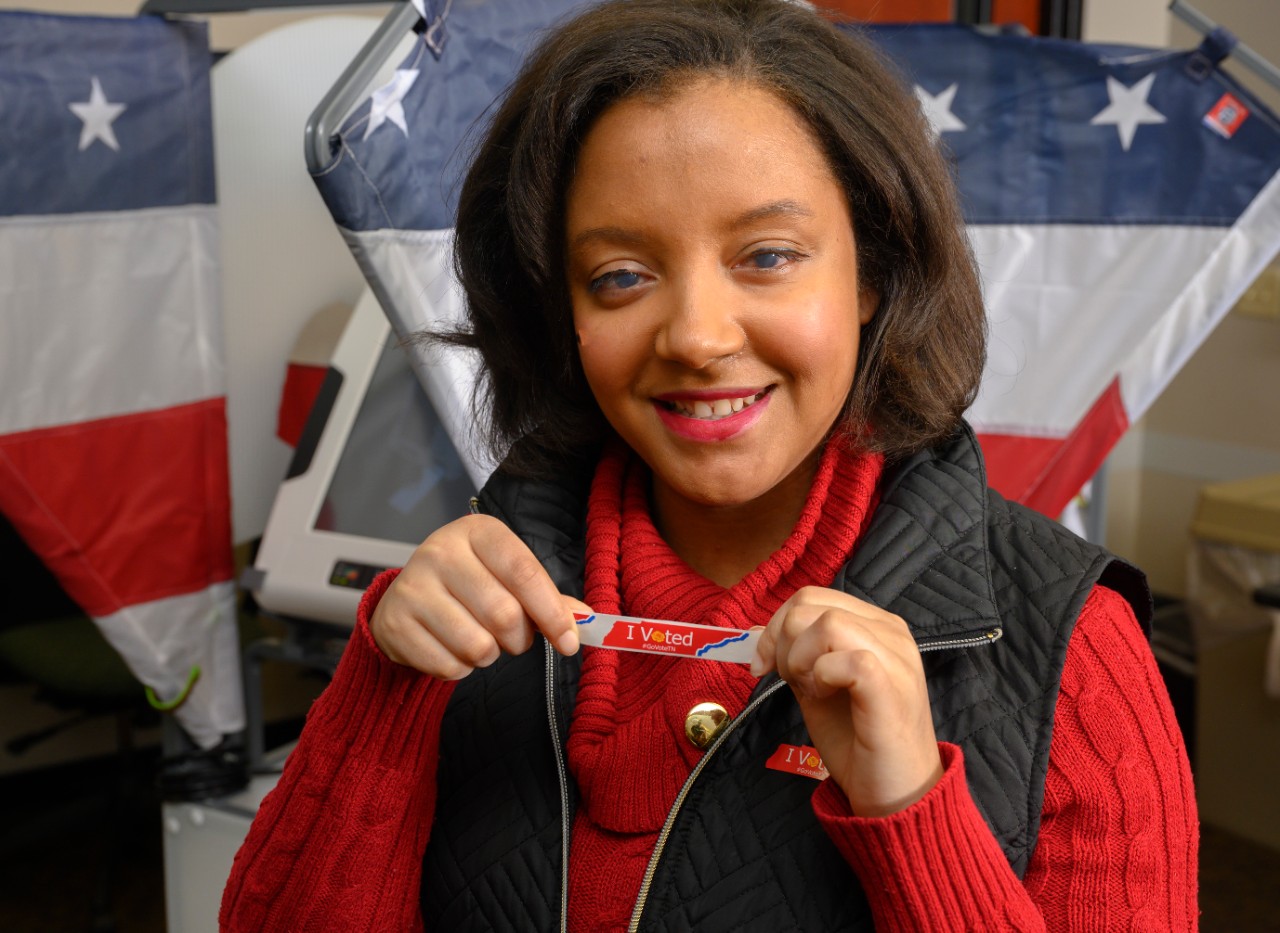
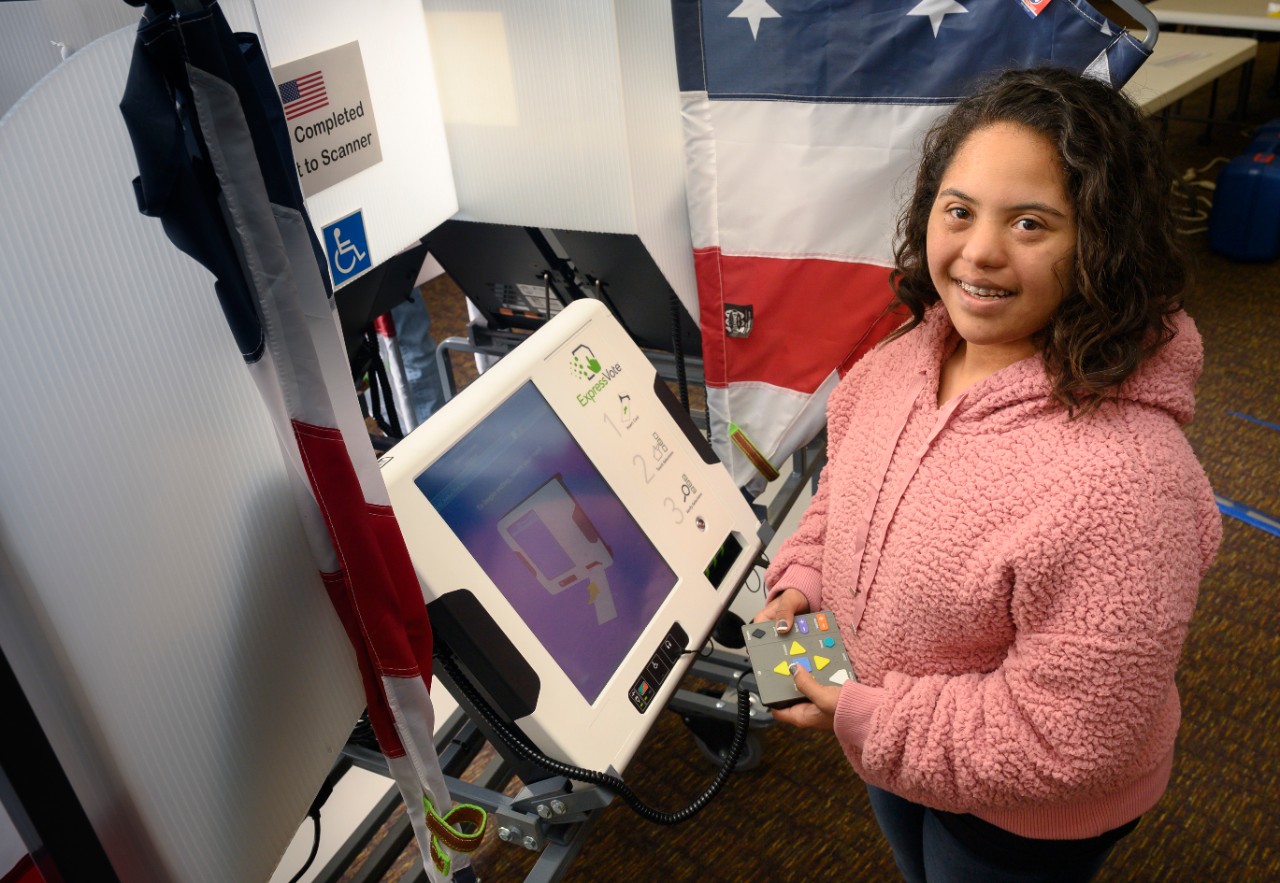
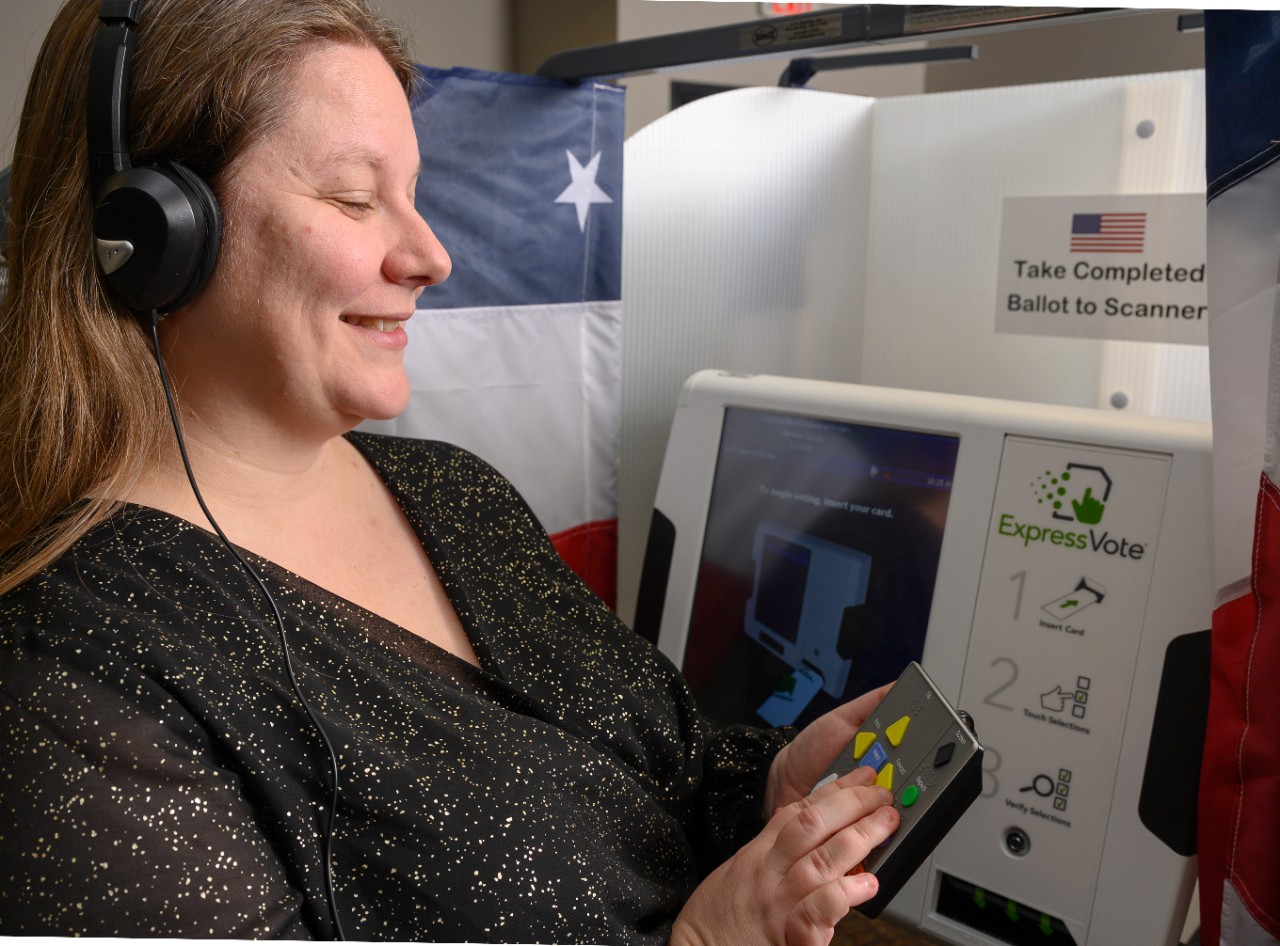
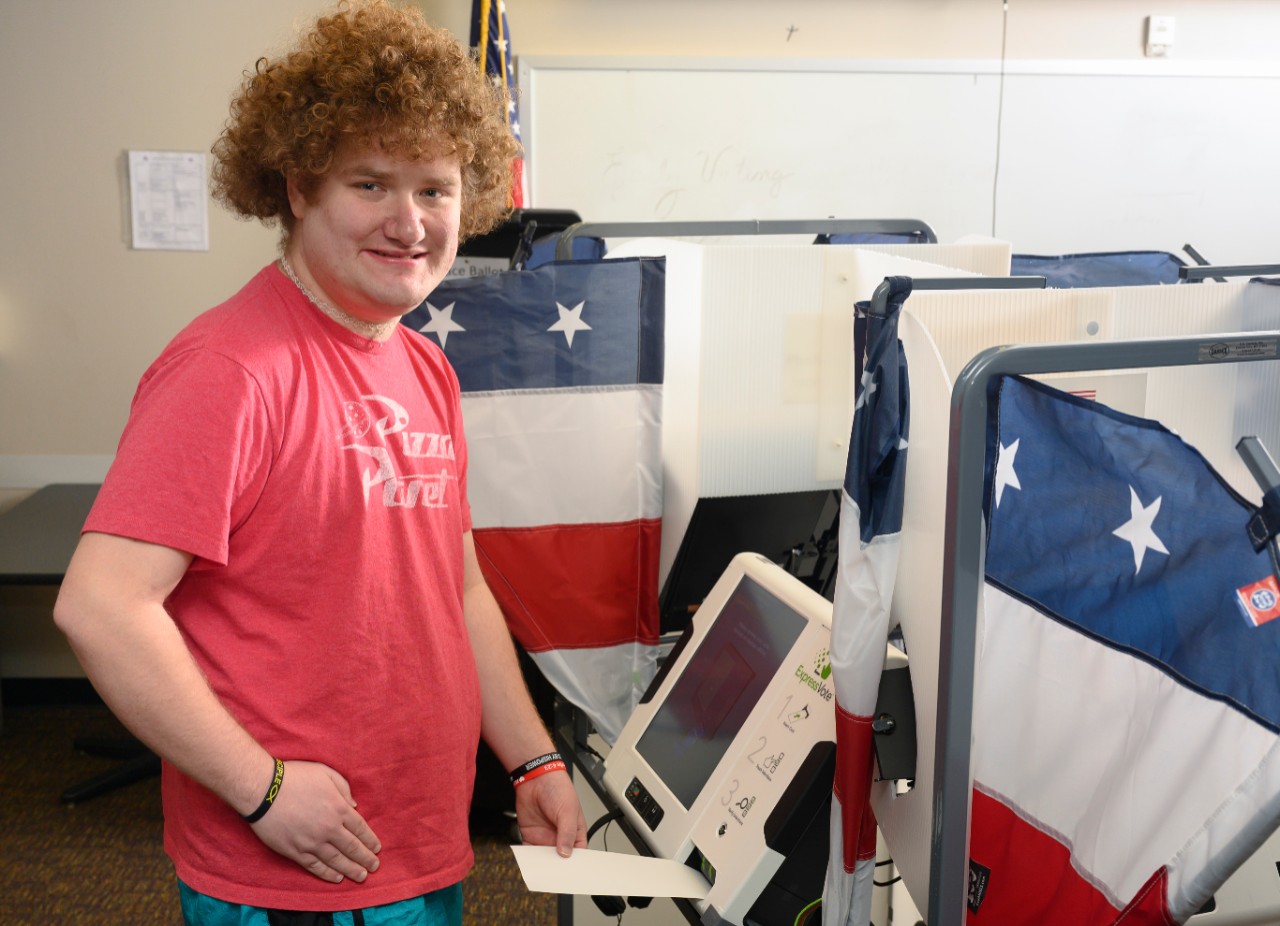
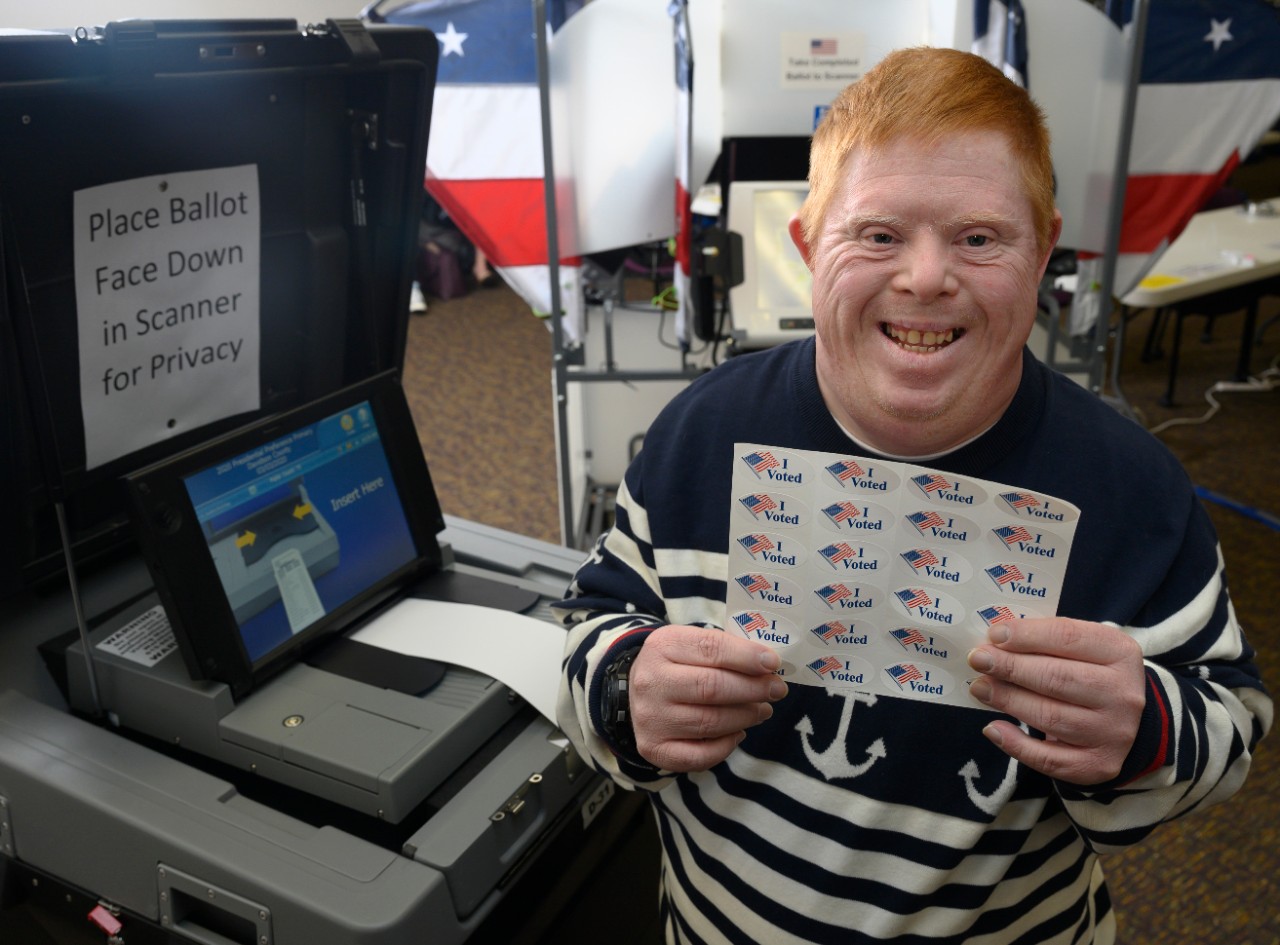
Get Involved - Make sure you are registered to vote or have your voter registration up-to-date. You can register to vote online at https://ovr.govote.tn.gov/. And always remember to vote!
One of the most important ways we participate in our community is by voting. Sharing opinions and information on the Internet is easier and takes less time, but voting is much more powerful. Our votes choose the people who make important decisions that impact our lives every day. And when we meet with them in person, our record of voting shows our legislators we mean business. If people with disabilities don’t vote, then our unique needs and perspectives may not be taken into consideration. The Council on Developmental Disabilities helped fund the work we’re doing to make sure the voices of people with disabilities are heard through voting.
Access is Key
If our poll sites are not accessible, voting is difficult. Getting in and out of a polling place, knowing what to expect when you go to vote, and receiving the help you need are critical in order to vote. At Disability Rights Tennessee (DRT), we work hard to ensure that poll sites are accessible.
Poll sites are temporary spaces. They pop up on Election Day and are gone that night. Often poll sites use spaces typically used for different things, like school gyms, hallways of public buildings, or church meeting rooms. These shared spaces aren’t designed to be poll sites. Sometimes their usual use doesn’t require them to meet Americans with Disabilities Act (ADA) standards. So, ensuring physical access to a poll site takes special time and attention by each county’s election commission.
Voters have a broad range of needs when it comes to the voting process. Anyone who needs any accommodation to vote has a right to ask for and get the help they need. For example, a person may need a sheet magnifier to read the ballot clearly. A person with a mobility barrier may need someone to help them enter their vote in the machine. For a poll site to be accessible, poll workers must understand how to meet the diverse needs of people with disabilities in their setting.
Making Change
Before elections even begin, DRT is working to make voting accessible for all Tennesseans. Together with the Secretary of State, we educate voters about their rights to accessible voting. We train poll site workers about meeting voters’ needs. When you visit your polling site on Election Day, you will most likely see our Voter Bill of Rights poster. You might even see our “Helping Tennessee Vote” guide for poll workers sitting out for reference.
DRT also helps with voter registration with our Voter Registration in a Box program. This program provides all materials and resources you need to host your own voter registration event in one convenient spot. The box has everything from information about how to find an accessible venue and promote your event to the materials to support someone in registering to vote.
Voter Registration Boxes include:
- voter registration forms
- postage
- event fliers
- event stickers
- social media tips and sample posts
- planning guide
- educational resources
- return postage
And, if you have questions, DRT staff is available to help you!
Get Involved - Request a Voter Registration in a Box by emailing Brian Keller at briank@disabilityrightstn.org.
On Election Day, DRT hosts a Voter Hotline. If you or someone you know has an issue accessing your poll site or voting on Election Day, you can call 1-800-342-1660 to report it. DRT works with the caller in real time to resolve the issue.
Get Involved - Share DRT’s Voter Hotline in your community. Consider contacting a local newspaper or radio station or sharing it in Facebook groups.
DRT also does poll site surveys on Election Day to make sure voting locations are accessible. DRT staff visit poll sites and look at whether they are accessible. After the election is over, we share what we found with the state and the county so they can try to fix any problems we found.
This year, we’re excited to also have the help of volunteers to conduct poll site surveys. After a one-hour online training, volunteers simply download our electronic poll site survey onto their iOS or Android device. Then, on Election Day, they visit a poll site or several poll sites, enter the data gathered, and help DRT keep voting accessible.
Better Together
DRT works hard to increase voting accessibility so all Tennesseans are able to vote. When we all work together, we can make huge change. Let’s help every Tennessean have their voice heard!
Author bio: Brian Keller is the Public Policy and Voting Attorney at Disability Rights Tennessee. He focuses on following legislation and regulation through the process and educating policymakers on the impact proposed legislation would have on Tennesseans with disabilities. He also works with state and county election officials to ensure the election process is accessible for all voters. Brian graduated from Belmont University College of Law in 2016, where he served as president of the health law society. A native of Fayetteville, Arkansas, he lives in Nashville with his wife and puppy.
Be an Informed Voter: More Voting Resources
More voting information:
- Disability Rights TN Voting Resources page - disabilityrightstn.org/resources/voting
- Self Advocates Becoming Empowered (SABE) GoVoter project - sabeusa.org/govoter
- Autistic Self Advocacy Network Voting Toolkit (ASAN) - Easy Read and plain language versions - autisticadvocacy.org/policy/toolkits/voting
- American Association of People with Disabilities (AAPD) R.E.V.U.P. campaign - aapd.com/advocacy/voting
TN Disability Policy Resources:
- TN Council on Developmental Disabilities weekly policy e-news
- Disability Rights TN Policy Watch e-news
- The Arc Tennessee
- TN Disability Coalition and Disability Day on the Hill
- TennesseeWorks blog
National disability policy issues
Personal Perspectives from Council Members on Why Voting Matters
Two members of the Tennessee Council on Developmental Disabilities give their thoughts about why voting matters for people with disabilities.
Q: Why is voting important for people with disabilities and their families?
Ryan Durham, Council Vice Chair, South Central District: “Voting is the very foundation of our democratic process. It is important for people with disabilities and their families for the same reasons it is important for the rest of Americans. Voting is the most crucial and direct role that the vast majority of our citizenry can play in governance. Clearly, voters carry more weight with elected officials than non-voters. So, it correlates that demographic populations and groups of Americans who are known voters have more access to and influence over the political process. If circles formed by people with disabilities and their families along with other advocates are known commodities on election day—in other words, we get out and vote—our messages will ring loud on election day.”
Linda Monterroso, Member, Memphis Delta District: “Voting gives people a voice. If you are passionate about something that affects you or those you love, whether a new law or a change, it's important for you to support it and push for its success.”
Q: What would you say to someone who thinks their vote doesn’t matter?
Ryan: “Contending that ‘your vote does not matter’ is the same thing as saying ‘you don’t matter.’ Neither is true.”
Linda: “If many people believe their vote doesn't matter, this can add up to many votes missed. This can mean the difference between one person or law being elected or passed. Voting is a privilege that many people – even many living in this country – do not have. We must make our voices heard.”
Q: Why do you think some Tennesseans with disabilities may not vote?
Ryan: “Logistics sometimes present difficulties. Even with the advances of early voting and other accessibility features with that process, sometimes it’s just hard to get to the polling place. Add to that the general malaise of voter apathy, and it’s easy for Tennesseans with disabilities to think voting is not worth their time and effort. That’s unfortunate, because very little is more important than voting to express your view on how our state and country operate.”
Linda: “There could be a number of reasons. Some may be accessibility, lack of transportation, or the need for a companion to go with them. Others may feel they are not sure of the issues and how that may affect them in a positive or negative way. Whatever the reason, it’s important to come together to offer support and encourage one another to vote.”